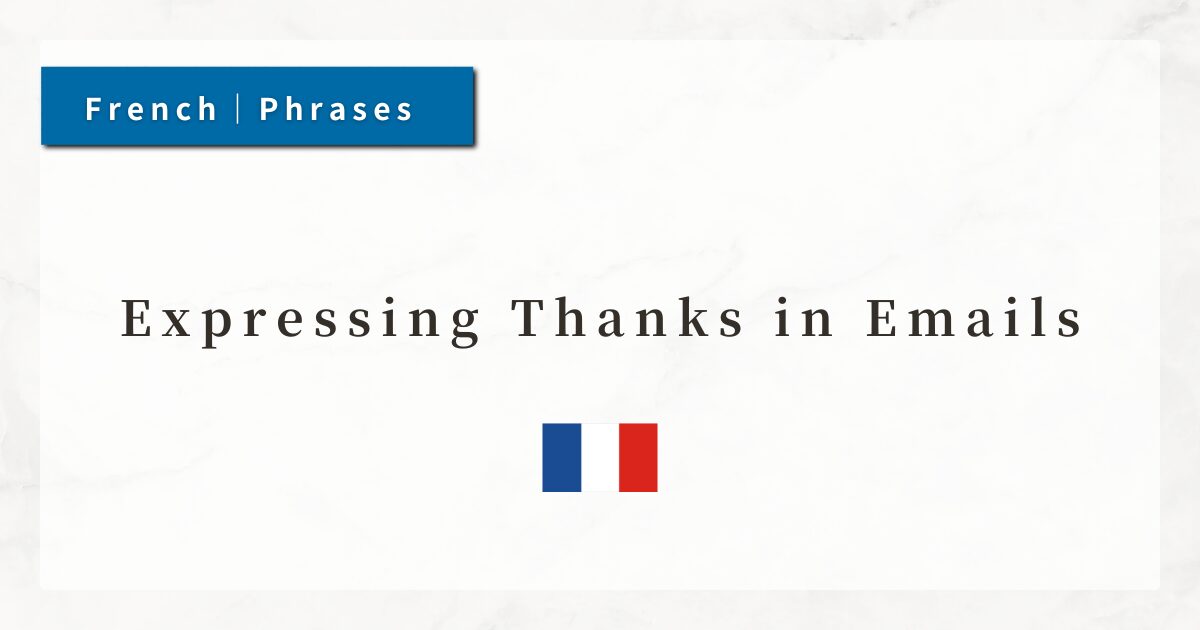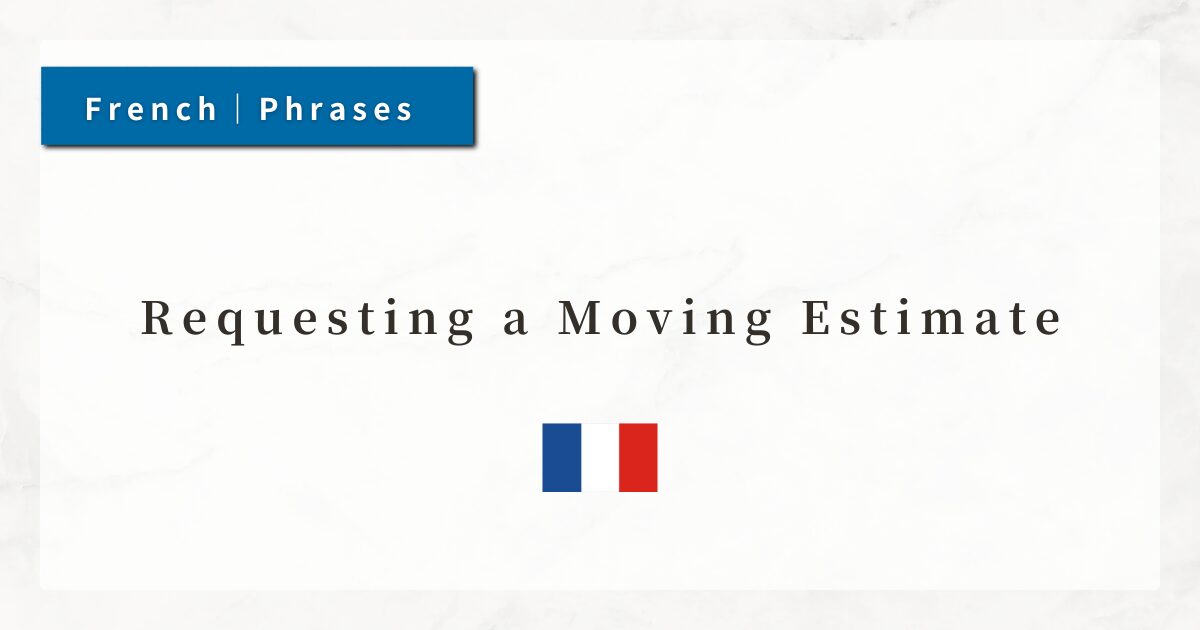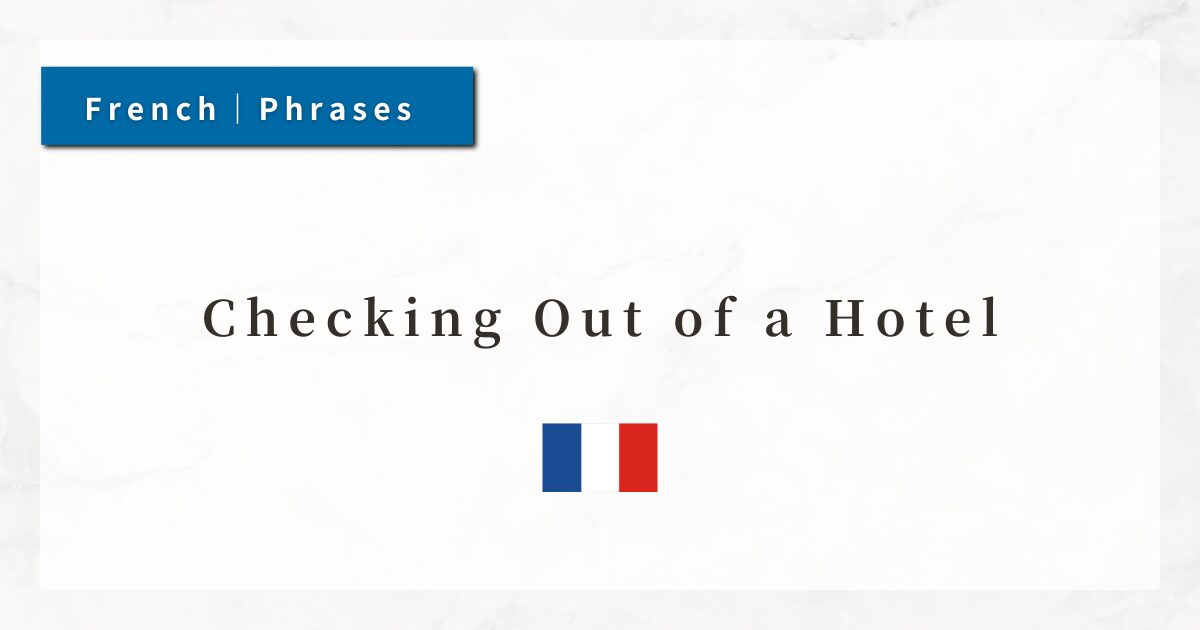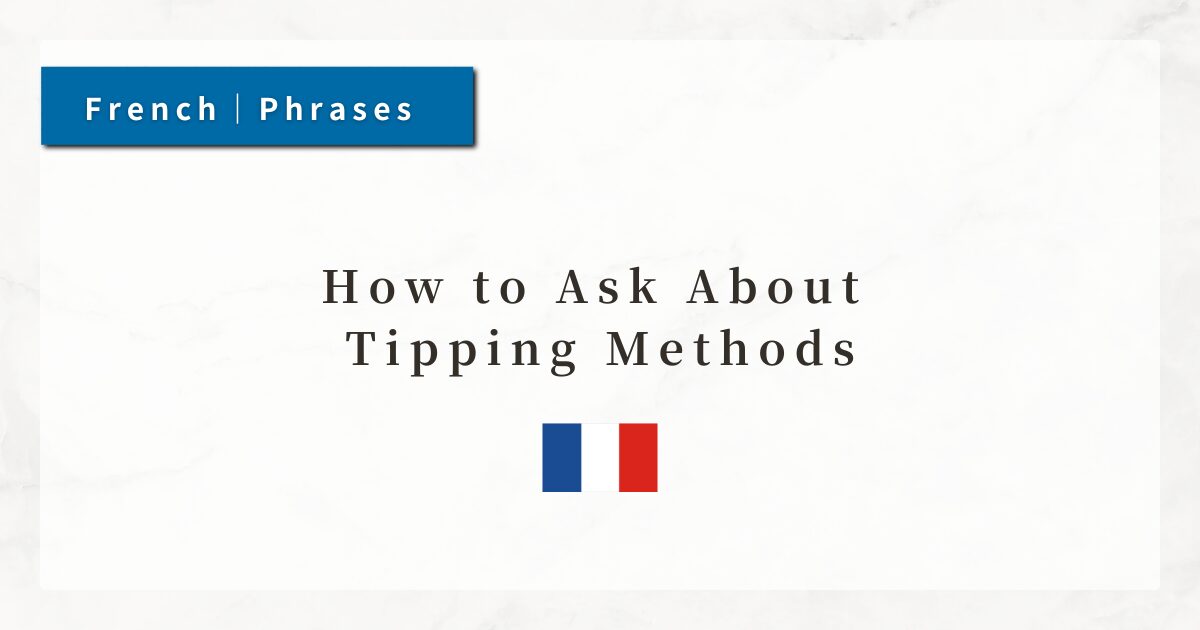#42 Expressing Thanks in Emails|French Business Phrases

When traveling abroad for work, study, or business, expressing gratitude in French is essential after receiving someone’s help.
In written communication such as emails or letters, the level of politeness in your wording strongly influences the impression you make.
Here, I will explain different ways to say “thank you” in French, along with the grammar and etiquette for using them in emails.
Dialogue
Objet : Merci pour votre aide
(Subject: Thank you for your help)

Bonjour Madame Dupont,
(Hello Mrs. Dupont)

Je vous remercie beaucoup pour votre accueil chaleureux hier.
(I sincerely thank you for your warm welcome yesterday.)

Grâce à vous, mon séjour s’est très bien passé.
(Thanks to you, my stay went very well.)

Je suis très reconnaissant(e) de votre aide précieuse.
(I am deeply grateful for your valuable assistance.)

Bien cordialement,
(Sincerely yours)
1. Basic Expressions of Thanks
“Je vous remercie …” is the standard formal way to say “thank you.”
- Je vous remercie beaucoup pour votre accueil.
(Thank you very much for your welcome.)
Here, “je remercie …” means “I thank ….” In business or formal emails, using vous expresses respect.
You may also use “Merci beaucoup pour …” when referring to something specific.
- Merci beaucoup pour votre aide.
(Thank you very much for your help.) - Merci beaucoup pour votre réponse rapide.
(Thank you very much for your prompt reply.)
Being specific makes your message sound more polite and thoughtful.
2. Phrases to Emphasize Gratitude
When you want to stress deep appreciation in a formal way, the following expressions are useful:
- Je suis très reconnaissant(e) de votre aide.
(I am deeply grateful for your help.) - Je vous suis très obligé(e).
(I am very much obliged to you.)
→ a somewhat old-fashioned but very formal phrase.
Reconnaissant(e) means “grateful.” Obligé(e) literally means “indebted” and is a classic expression still found in letters.
3. Expressing “Thanks to You …”
Linking gratitude to a concrete result makes your message more impactful.
- Grâce à vous, mon séjour s’est très bien passé.
(Thanks to you, my stay was very successful.) - Votre aide m’a beaucoup aidé.
(Your assistance helped me a great deal.)
The phrase “Grâce à …” (thanks to …) emphasizes the positive outcome resulting from someone’s help.
4. Closing an Email
French emails traditionally end with a polite closing, similar to “Sincerely” in English.
- Bien cordialement,
(Kind regards / Sincerely) - Avec mes remerciements,
(With my thanks) - Sincèrement,
(Sincerely)
“Bien cordialement” is versatile and can be used in both business and personal correspondence. “Avec mes remerciements” highlights gratitude more strongly.
5. Casual Thank-You Emails
When writing to friends or host families, casual expressions are perfectly fine.
- Merci encore pour hier !
(Thanks again for yesterday!) - J’ai passé un super moment grâce à toi.
(I had a wonderful time thanks to you.)
In formal contexts you use vous, but with close friends it is natural to use tu. Avoid overly formal expressions and keep it warm and straightforward.
Summary
- Je vous remercie …
→ formal “thank you” - Merci beaucoup pour …
→ practical phrase with specific object - Je suis reconnaissant(e) … / Je vous suis très obligé(e).
→ formal expressions of deep gratitude - Grâce à vous …
→ linking gratitude to a positive result - Bien cordialement / Avec mes remerciements
→ standard closing expressions in emails




